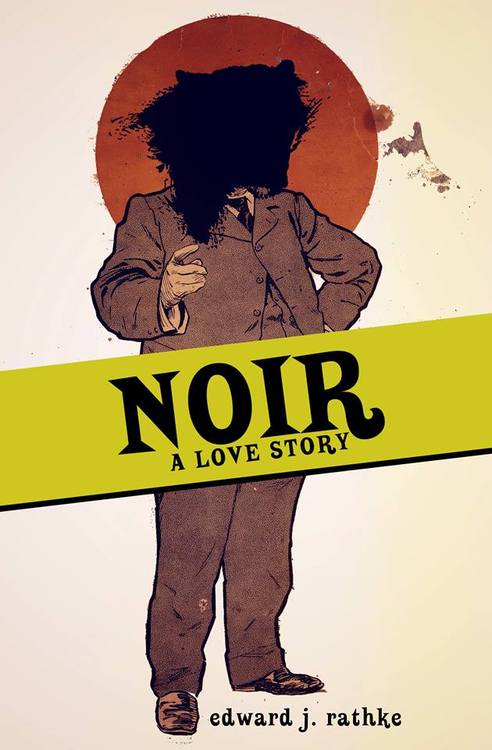
Noir: A Love Story by edward j rathke is forthcoming this summer from Civil Coping Mechanisms, and I had the opportunity to pose Edward J Rathke some questions inspired by his phenomenal book.
***
What’s your real name?
I used to hate my real name. I used to hate it so much. I hated the way it looked on paper and I hated the way it sounded, rolling round my ear, those two stupid hard consonants just a few letters apart. I’ve made a thousand names for myself over the years and most of them nothing like mine. I lived in worlds that only existed inside my head and I made me new. For a long time I hated my face too and I avoided mirrors like they were plagued and I stopped remembering properly what I look like, and this problem persists. The person I see with my name when I close my eyes isn’t the one who smiles back in the mirror. Even my dreams stopped being about this name and this body. I became other men and other women and I dreamt in their bodies, with their names.
Now I’m comfortable with the name I was given so long ago: edward j rathke. I even have a supervillain name ready for whenever I fracture apart and try to take the world apart: Wrath Key.
But is edward j rathke the best at answering these questions? Probably not. He’s a very silly human, though he sort of writes the opposite of silly books. Sometimes he wishes his novels had more silliness, way more zaniness, but we suppose writing is where those heavier parts of him go so that he can go on living silly, lightly, while we write on, Deathly.
What’s the story you always tell? What’s the story you’ll never tell?
I don’t know if there’s a story I’m always telling people. Probably there is, but the ones I feel like people are always asking me about are the ones where I almost died. Like the time I took a 60 foot freefall onto rocks or the time my appendix exploded while I was in Korea and I spent a week in a hospital where no one spoke English. Most of my stories involve me being lost and making bad decisions.
There are so many stories I’ll never tell but not because of fear or shame or regret. There are memories that are sacred to me. In many ways they’re all we have as humans. Our life is just a collection of memories, and memory is largely a creative process of stitching together misremembered moments. When you share a memory, it stops being yours. So when you speak your memory into new ears, that memory becomes theirs, and in that transference, the memory changes twice [first by making it into words and then again by the person hearing those sounds, stitching it to the fabric of their life] and becomes something new. If they share that memory, it again transforms, and so when your memory is shared with others, it stops being yours and becomes something wholly different than who you are, which is a body housing memories. And so I keep the best ones inside and I share them with no one. Not even in my fiction, and definitely not in interviews like this.
Most of them are about love. Those howling bits of time, fraying, hoping.
And maybe Noir: A Love Story is both. It’s full of the story I’m always telling—the unknowable humanity, the howling ache chasming between us, the sublime perfection of existence, the beauty of its ending—and the ones I’ll never tell. All those stories I’ll never tell, those are the ones at the center of Noir: A Love Story. I’ve given you the impressions of lives but told you nothing about what they mean to the people who lived them, and so the reader decides and discovers. In that discovery, they’ll probably find the many mes that I’ve been all these years.
What does desperation make you do?
Desperation’s made me do a lot of things. I’ve lived a strange life full of stranger existential crises. Desperation sent me to Ireland and South Korea. It’s sent me wailing into the night. It’s sent me down roads of destruction, but I’ve also poured it over thousands of written pages. When I was younger I didn’t sleep really at all—still don’t, I guess, though mostly out of habit—and that was something deep and dark gnawing at me all my life. Then while still too young I spent those sleepless nights drinking, causing chaos, writing terrible poetry and screaming it into the sunless sky, breathing smoke on rooftops.

“Time eats you. Dead or dreaming” What else?
I have strung wires from steeples to stars and tightroped across the sky. READ MORE >


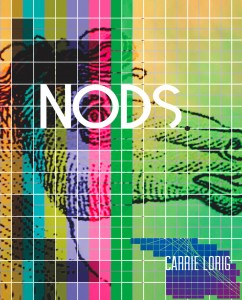 nods
nods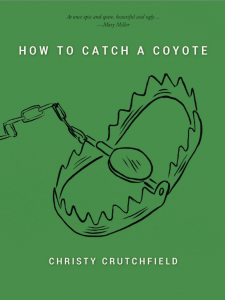
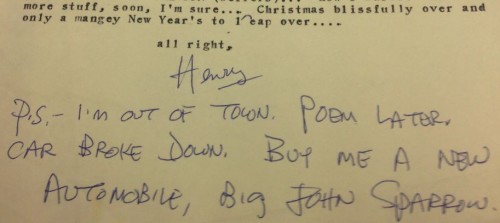
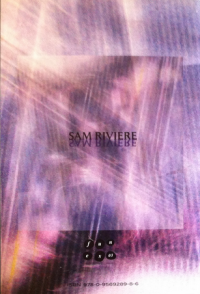


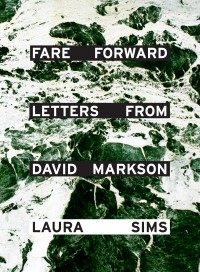 Fare Forward: Letters from David Markson
Fare Forward: Letters from David Markson